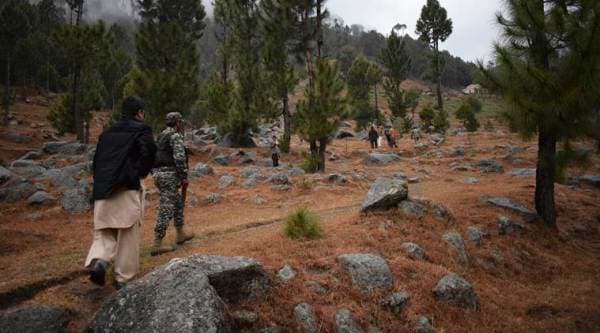There’s no silver bullet solution to Pak-sponsored terror; Politicisation will constrict choices
Putting an end to Pakistani terror militarily would require an all-out war to give it a crushing blow — entailing a heavy economic cost, totally disproportionate to the threat posed by it.

The Balakot airstrike has resulted in euphoria reminiscent of the days following the surgical strikes of 2016, with tall claims figuring in our national discourse. Even as we salute our Air Force, it is essential to separate the grain from the chaff, and appraise our actions post-Pulwama.
Our diplomatic effort was a success. Though our government’s goal of isolating Pakistan was unrealistic because of the interests of major countries in Pakistan, our diplomacy secured widespread condemnation of the Pulwama terror attack, ensured no sympathy for Pakistan against our pre-emptive strike (barring the ritualistic and inconsequential condemnation by the OIC Contact Group), and, also resulted in the quick return of Wing Commander Abhinandan Varthaman. Further results, if any, in making Pakistan address our terror concerns meaningfully are yet to be seen.
Withdrawal of Most Favoured Nation (MFN) status to Pakistan, though justified strictly in terms of reciprocity, mirrored Pakistan’s short-sightedness in hurting the interests of its consumers by restricting imports from India over the years. Pakistan’s exports to India being less than two per cent of its global annual exports, the move may hurt their exporters individually, but will not change the calculus of their security establishment. It will hurt our consumers by obliging them to pay a higher cost for Pakistan’s goods because of the significant tariff hike or import those goods from further afield paying a higher freight.
The Balakot strike, involving the use of air power to hit a terror target in Pakistan, represented a notable shift in our approach. Despite the subtext of revenge for Pulwama, we did not characterise it as such. Therefore, the extent of damage caused, though important for any such action in future, is not a key consideration in this case. The nature of the strike will create some uncertainty in the minds of Pakistan’s terror planners and marginally raise the cost of their “low cost option” by making them adapt and, possibly, pull back terror training facilities deeper inside their territory. However, unless we see meaningful action by Pakistan to curb its terror machine, the strike may also end up demonstrating the limitations of using military power to terminate the Pakistani terror menace.
Putting an end to Pakistani terror militarily would require an all-out war to give it a crushing blow — entailing a heavy economic cost, totally disproportionate to the threat posed by it. Pakistan lags behind us in all walks of life, its economy is one-ninth ours. The gap continues to grow. Its terror has not slowed down our progress. It cannot pose an existential threat to us by itself, and is at best a terror irritant that manages to perpetrate large-scale terror attacks occasionally. Tragic as these events are, they should not make us oblivious to our primary challenges of economic transformation and dealing with an increasingly assertive China. We can also not ignore the nuclear dimension despite the strategies proposed from time to time to circumvent it. The Balakot strike did not call Pakistan’s nuclear bluff, as claimed by some, as it did not come anywhere close to the threshold defined by Pakistan for use of its nuclear weapons.
That brings us to the tactical options, overt or covert, to impose costs on Pakistan and deter it. Our recent strike, though pathbreaking, fell in this category. However, the impact of such actions is temporary till Pakistan recovers, adapts and goes back to its bad ways. Further, Pakistan’s ability to retaliate raises the risk of escalation. Thus, heavy firing by us across the LoC/international border in the last few years resulted in a stalemate — tit-for-tat killings of civilians and security personnel — and that cycle threatens to pick up again. Our surgical strikes led to the ramping up of terror by Pakistan. And their retaliation to the Balakot strike left us staring at possible escalation with an uncertain trajectory and outcome. In a repeat of the classic Indo-Pak script, other influential countries got involved and the situation appears to be moving towards de-escalation. However, frequent third-party intervention risks bringing back the Indo-Pak hyphenation, and betrays our inability to manage our region even as we aspire to a larger global role.










.png)




























No hay comentarios:
Publicar un comentario